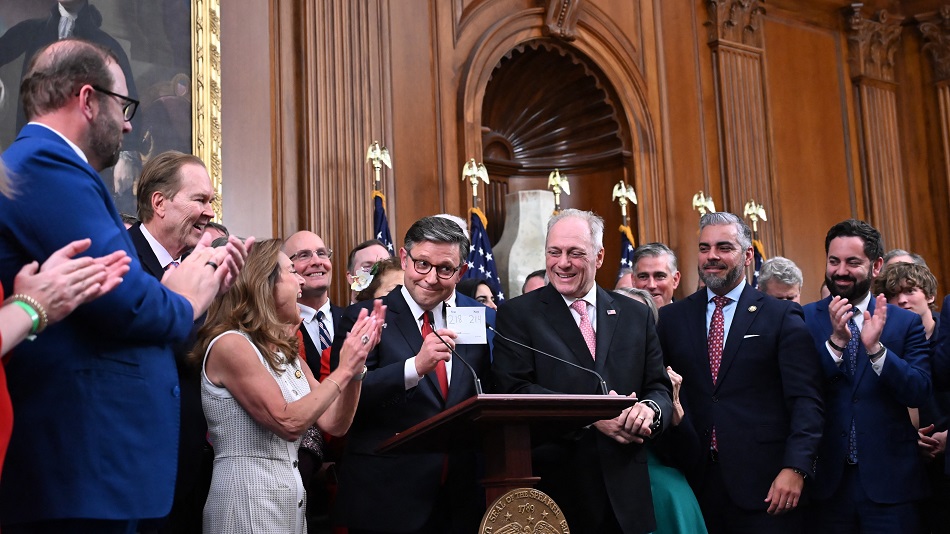



In a move that has sparked nationwide debate, Republican lawmakers have passed a sweeping bill that drastically cuts federal safety net programs while significantly enhancing immigration enforcement. Prominent GOP leaders introduced the legislation with strong backing, while Trump allies quietly supported it, reflects a broader strategy ahead of the 2025 presidential election.
This article breaks down the key changes, political reactions, and what it could mean for ordinary Americans.
The newly passed bill centers around two major policy shifts:
GOP leaders framed the bill as a “restoration of American order and financial responsibility.”
Senator Tom Williams (R-TX) declared, “This is about putting Americans first—ensuring our borders are protected and our economy isn’t drained by overgrown federal programs.”
Supporters argue that the reforms are not cuts but realignments that redirect resources to national priorities like security and economic productivity.
Democrats and advocacy groups have fiercely opposed the bill. House Minority Leader Maria Diaz (D-CA) called it “a cruel attack on working families and vulnerable immigrants.”
Opponents argue that cutting critical safety net programs will leave millions of Americans in poverty, while the aggressive immigration measures threaten civil liberties and deepen racial tensions.
Organizations such as Human Rights Watch and the Center on Budget and Policy Priorities have issued warnings, saying the bill could destabilize communities and worsen inequality.
Across the country, the bill has ignited protests in major cities including New York, Chicago, and Los Angeles. Citizens have taken to social media to express outrage, using hashtags like #SaveOurSafetyNet and #StopTheGOPBill.
While conservative voters in Republican strongholds have praised the bill’s focus on border control, many moderate voters are voicing concern about the impact of slashed aid programs.
If the bill is enacted fully into law:
Many political analysts believe this legislation is strategically timed. With Donald Trump remaining the de facto leader of the Republican Party, and many expecting him to run again in 2028, this bill plays directly into his base’s priorities: fiscal conservatism and strict immigration control.
The move may also be intended to pressure President Biden ahead of the upcoming federal budget negotiations, forcing his administration to either compromise or appear weak on key voter issues.
Whether seen as a patriotic realignment or a harsh rollback of human support systems, this bill marks a dramatic shift in U.S. policy. The coming months will reveal whether public opposition and legal challenges can stop it from becoming permanent law.
Stay informed and make your voice heard—what happens next could affect millions of lives.